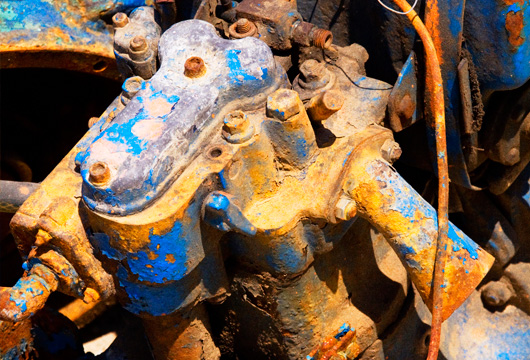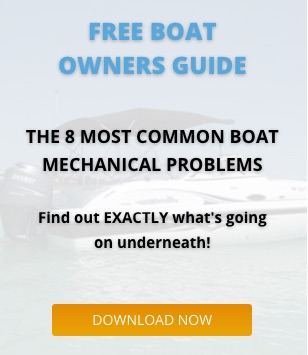Salt water attacks everything on boats and if left to it’s own device, things start falling apart, breaking down and leaking. The most important area to keep clean of salt water and moisture is your engine bay and bilge area.
Engines don’t like ingesting water at the best of times, but if:
- there is salt water in the engine bay the engine will suck in water through the air intake and destroy itself in no time.
- the bottom of your engine corrodes out, oil can leak and then the engine will seize up.
- There is condensation in your engine bay mould can grow, which is never good for mechanical componentry.
There are steps you can take to prevent salt water corrosion damage, these include:
-
Keep engine bay and bilge area clean and dry
Probably 70% of boats have got water in their bilge area. You should have a dry bilge area and if you haven’t you need to find the source of the leak and plug it. Leaks could be coming from any number of places such as Transom Shield, water pumps or hoses, shaft seals, riser gaskets/risers, any component associated with the raw water cooling of an engine. Source the leaks….
-
Visually inspect wiring, wiring harnesses and connections on the engine
If these electrical components are being affected by salt water they will start to corrode and malfunction. Replace or repair any affected components immediately.
-
Test your bilge switch regularly
A faulty bilge switch can cause a boat to sink, so this is an extra special item on your boat to regularly check. Check it before going out and on your return.
-
Properly flush your engine with freshwater
Make sure you are flushing your engine with freshwater as often is necessary for your particular boat and storage method and for the recommended length of time. Don’t cut corners here as it will only cost you in the long run.
-
Don’t take any risks – fix problems early
Don’t take the risk. Boats need more attention than cars and ignoring the engine compartment on a boat can be full of potential and life threatening hazards. It could cost you towing, a new engine assembly or even a new engine, which could run into tens of thousands of dollars for what could have been a simple $80 part. Not to mention how dangerous it can be in the wrong situation to have your engine break down on you. Get potential problems fixed before you take the boat out again.
-
Get a professional inspection
Call us if you would like some help. We’ll do a thorough check over of your boat and let you know if there are any concerns that need to be addressed to minimise future damage. We pride ourselves on providing honest, professional advice – you won’t get ripped off and we won’t cut any corners.
Contact us today for a quote.



